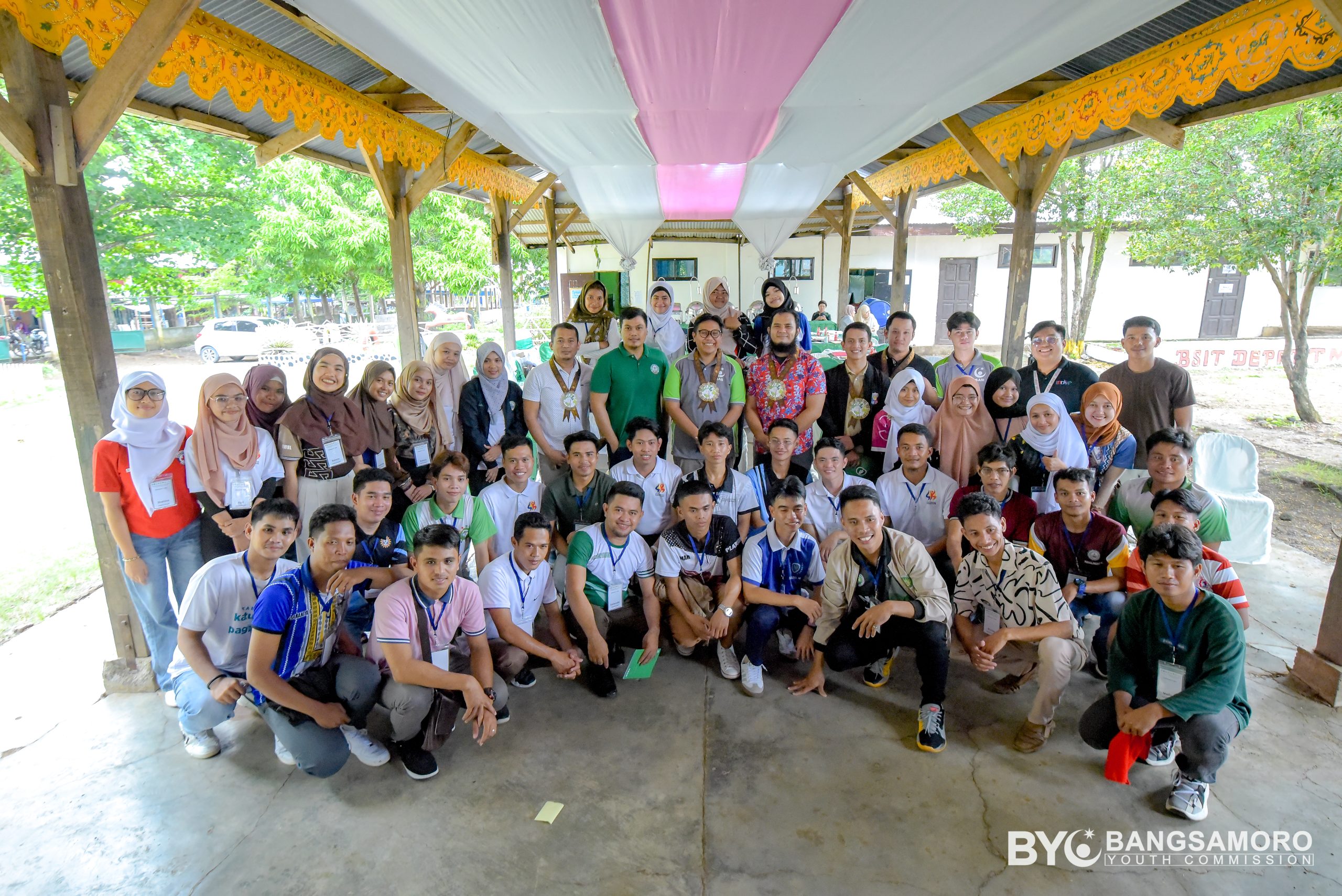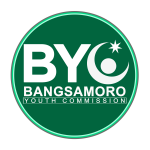About Us
The Bangsamoro Youth Commission
The creation of a government agency that is concerned about youth affairs in Muslim Mindanao took place 22 years ago when the former Regional Governor, Nur Misuari signed the Executive Order No. 1 Series 1997 that created the Coordinating and Development Office Bangsamoro Youth Affairs (CDO-BYA). Four years later, it was renamed the Bureau of Youth Affairs (BYA) after MMA Act No. 122 was passed in the Regional Assembly on August 21, 2001. Finally, the Muslim Mindanao Act No. 287 also known as the Administrative Code of ARMM further renamed it as the Office on Bangsamoro Youth Affairs (OBYA).
Primarily, the mandate of the then youth arm of the regional government was to prepare, implement, monitor and evaluate plans and programs for the welfare and development of the youth sector. It shall ensure youth’s active participation in the affairs of government. It then envisioned a just, peaceful and humane society where it upholds the rights and enhances the capacity of the youth to life at its fullest according to well-set morals and traditions that served as the cornerstone of their programs and operations.
With the passage of the Bangsamoro Organic Law on July 2018 replacing the Autonomous Region in Muslim Mindanao (ARMM) with the Bangsamoro Autonomous Region in Muslim Mindanao (BARMM), the Bangsamoro Transition Authority (BTA) was installed. The BTA serves as the interim government until the regular government takes into place through the election by 2022.
In April 2019, the BTA appointed a new Executive Director of the OBYA in the person of Dr. Marjanie S.M Macasalong, also a Member of Bangsamoro Parliament. As the BTA approves the Bangsamoro Transition Plan, the OBYA was renamed the Bangsamoro Youth Commission (BYC) and later formalized as a Commission through the enactment of the Bangsamoro Autonomy Act 10 (BAA 10) in April 2020.
The Bangsamoro Youth Commission is an office attached to the Office of the Chief Minister, created and established by virtue of the Bangsamoro Autonomy Act No. 10. The BYC, according to the BAA 10 shall serve as the primary policy-making and coordinating body of the Bangsamoro Government in all matters affecting the youth. Further, the Commission ensures compliance therewith by all ministries, agencies, offices and other instrumentalities of the Bangsamoro
Government that are mandated to implement programs, projects and activities affecting the youth of the Bangsamoro Autonomous Region. By age range, the Commission covers young people from 15-40 year-old (BYTPA, 2020).
BYC Transition and Beyond
Like the other BARMM ministries, the BYC was also enjoined to develop its own priority agenda during the transition phase (2019 to 2022). The Bangsamoro Youth Transition Priority Agenda was, however, expected to take part in the realization of the BARMM’s 12-point agenda which was developed by the BTA through the Bangsamoro Planning and Development Authority (BPDA) formerly known as the Regional Planning and Development Office (RPDO).
In the first phase of the transition, the Bangsamoro Youth Commission accomplished several feats: establishment of youth stakeholders mechanism – both government institutions, and development partners; and institutionalization of internal standards for human resource and operations. The Commission has also been working on youth engagement, participation, and development in the region in the past three (3) years. While prioritizing the realization of what had been planned in the Bangsamoro Youth Transition Pariority Agenda – It also ensures smooth transition from OBYA to BYC, maintaining its active engagement with the Bangsamoro youth through its programs, projects, and activities (PPAs).
However, the BYC faces a number of challenges that undermines its journey towards a strong and institutionalized office: bureaucratic processes, glitch on its technical documents brought about by the rapid transitional pace, and the pandemic hit. These challenges manifested during the recent BARMM’s Directives, Accomplishments, and Performance Assessment Tracking (DAPAT) meeting that has been administered by the Bangsamoro Planning and Development Authority (BPDA), and the Ministry of Finance and Budget and Management (MFBM).
BYC's Four Major Programs, Projects, and Activities
By 2023, the Bangsamoro Youth Commission is recalibrating its plan, particularly the PPAs – ensuring that institutional strengthening will be its cornerstone; and that it must be geared toward the realization of the Commission’s mandate.
After a series of intensive brainstorming and workshop sessions, the Commission came up with a framework that paved the way to the formulation of its recalibrated four (4) major programs:
- Stakeholders and Partnership Building. Stakeholders and Partnership Building is one of the Commission’s core activities for 2023 and beyond, in accordance with the Commission’s mandate and to solidify new collaborations that will benefit both BYC and its partners – ministries, offices, agencies and development partners.
Participatory and community-based techniques will be used in stakeholder engagements to promote activities and initiatives that will improve the lives of youth, protect and secure their rights and welfare, and enhance their participation in government. In addition, Partnership Building is one way to increase the Commissison’s capacity to engage and collaborate among other stakeholders.
Stakeholders and Partnership Building will be realized through the subprogram 1.1 (Enabling Youth Participation) and subprogram 1.2 (Development and Coordination with BARMM Ministries, Offices, LGUs and Development Partners)
- Subprogram 1.1 Enabling Youth Participation and Development
Enabling Youth Participation in Development is a strategy and initiative aimed at promoting moral governance and inclusive growth. It is a tool in increasing transparency, accountability, and integrity, as well as in strengthening relationships between the government (the Commission) and youths, allowing them to participate in policymaking.
The Commission will realize collective grassroots mechanism for youth empowerment. This subprogram will shape young people into proactive Bangsamoro youth who recognize that region cannot flourish unless all of society’s components work together to meet the regions’ goals. It also aims at capacitating youths from different sectors and eventually form them into an organization. This will foster strong partnerships and linkages from local youth groups in the region.
- Subprogram 1.2 Coordination with BARMM Ministries, Offices, LGUs and Development Partners
This subprogram is comprised of mechanisms that fosters strong connections with BARMM Ministries, Offices, LGUs and Development Partners. These are 1.) Bangsamoro Youth Coordinating Council; 2.) Development Partners Forum; and 3.) Regional Youth Advisory Council among others. These are systematic efforts to institutionalize coordination (as opposed to relying exclusively on the ad hoc coordination that occurs as a matter of course among agencies) will tend to be more stable, visible, and feasible than relying only on informal networks used in promoting interagency interactions.
- Youth Responsive Policy and Program Development. The Commission is the safe space of the young people in the region and is responsible for creating conducive environment and institutions that treat young people with dignity and respect. Interestingly, meaningful youth engagement views youth as partners in the decision-making process. Responsive programs and activities for youth development must be developed for the youth and with the youth. Hence, young people must be able to establish intersectional policies that properly acknowledge the diversity of their backgrounds, identities, and experiences, while also putting the most marginalized at the center.
- Subprogram 2.1 Baseline Research Documentation
The Bangsamoro Transition Priority Agenda (BYTPA) emphasized the lack of disaggregated baseline data during the preparation of the youth transition plan. The benefit of having a baseline is that it serves as a reference in effective programming. The Bangsamoro Youth Assessment Study, Policy Research Incubation, and Policy Research and Reform Courses for Youth, among others, are all vital for BYC as a policymaking institution. The research program will serve as basis for the creation of sound policies and appropriate programs for youth.
- Subprogram 2.2 Youth Policy Agenda Development
Policies influencing and governing young people, like any other programs and activities, must be established for and with young people. Mechanisms that will improve the meaningful participation of youth in policymaking should be in place as BYC exposes its key principle, ‘Kabataang Bangsamoro, Ikaw ang Pagbabago.’ Policy simulations that allow youth to demonstrate orderly parliamentary debates, initiatives that develop youth advocates who can influence policymakers in addressing youth concerns, and innovative policies from youth sectors that bridge youth development gaps at the national and local levels are all important in promoting youth socio-political participation.
- Public Engagement Programs. Designed as a two-way process that involves interaction and listening with the purpose of mutual understanding and gain from BYC and its constituents. These are composed of the media, youth engagements, and other mechanisms to get our message across our youth populace in both rural and urban communities. Further, as part of the Commission’s commitment to promote the BARMM government’s campaigns and thrusts on youth, public relations programs and activities will be developed to send the right messages to the right location and the right people, countering misinformation, disinformation, and fake news.
- Monitoring and Evaluation. Monitoring and evaluation are essential components of a policy-making and coordination. M&E programs are designed to evaluate BYC’s programs for its constituents, as well as to evaluate the implementation of youth-related programs and activities by implementing ministries and agencies, in order to have internal and external accountability for the resources utilized and the results produced. This will help the Commission make informed decisions, and also it provides the beneficiaries a mechanism for feedbacking to influence sound policies and programming.
News and Updates
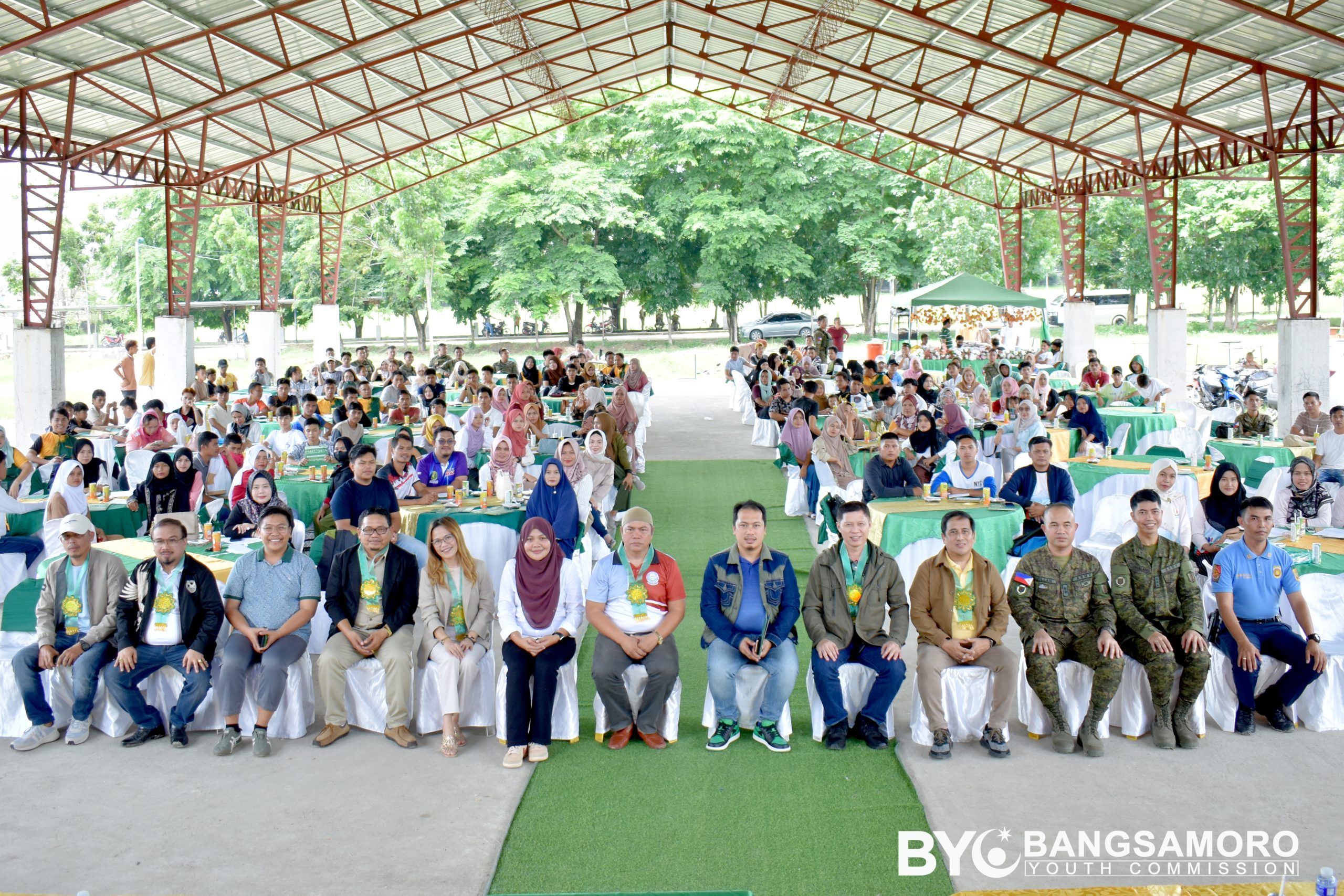
BYC launches youth empowerment project in SPMS Box
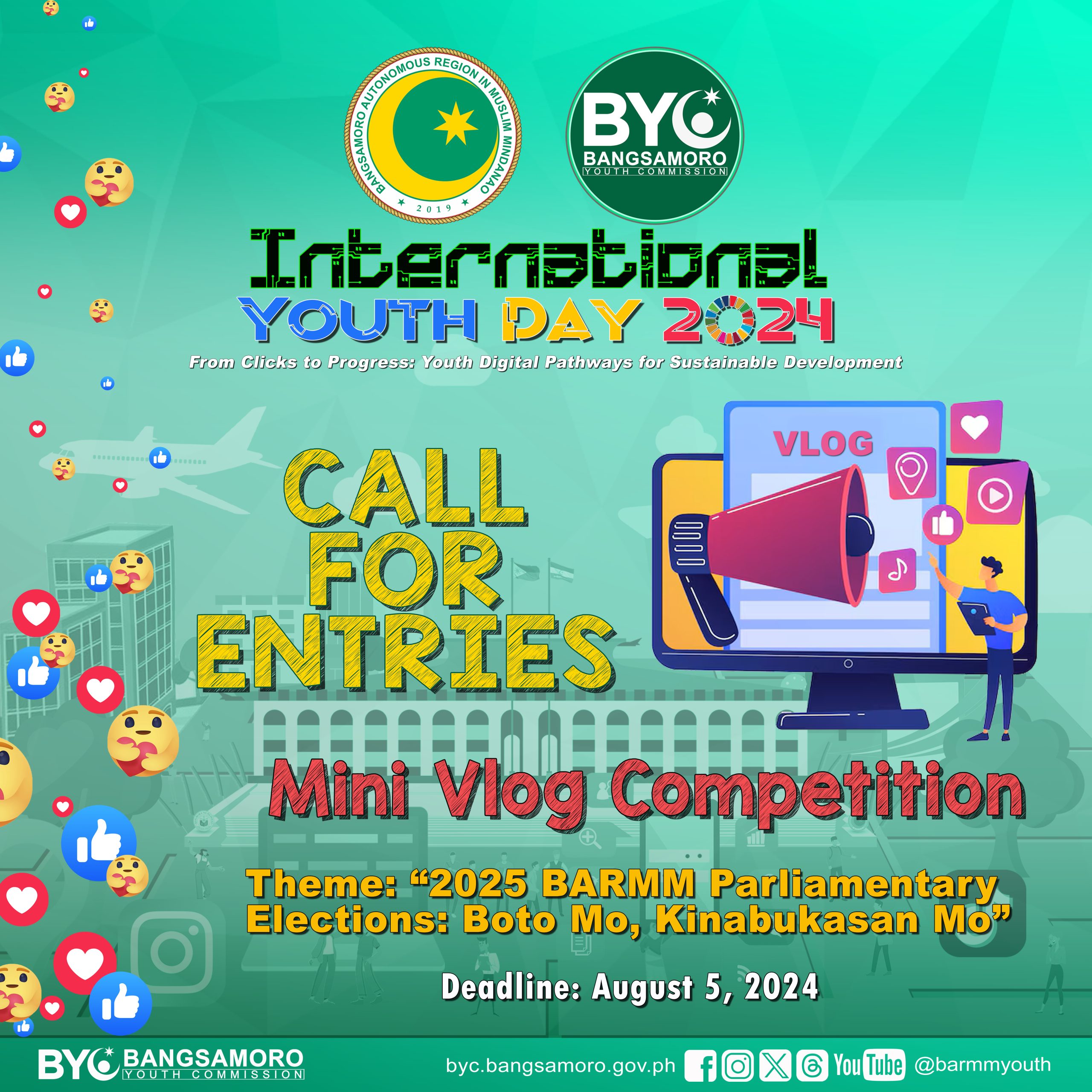
Call for Entries: Mini Vlog Competition
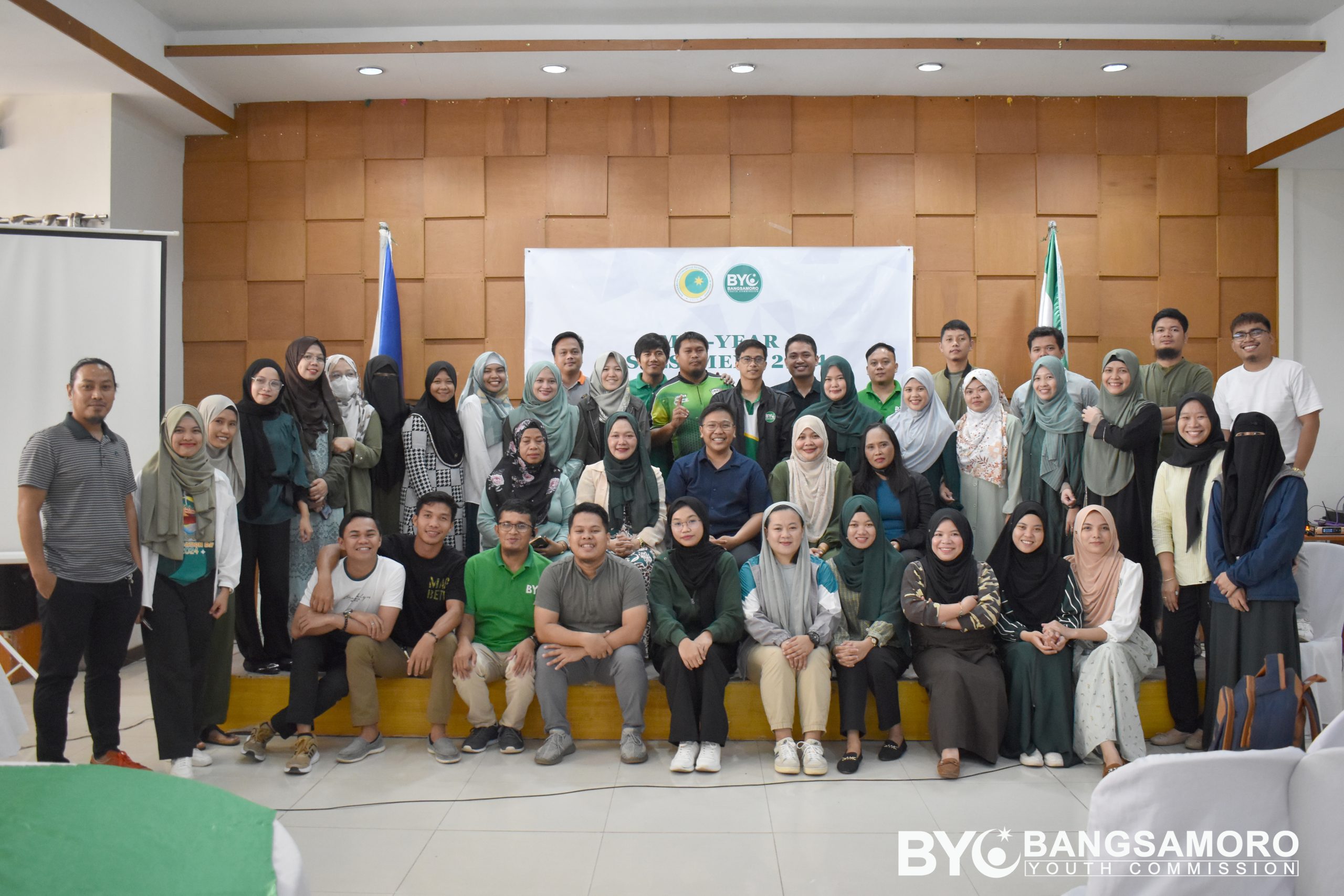
BYC holds Mid-Year Assessment 2024

24 former young combatants in BaSulTa undergo cooperative management training
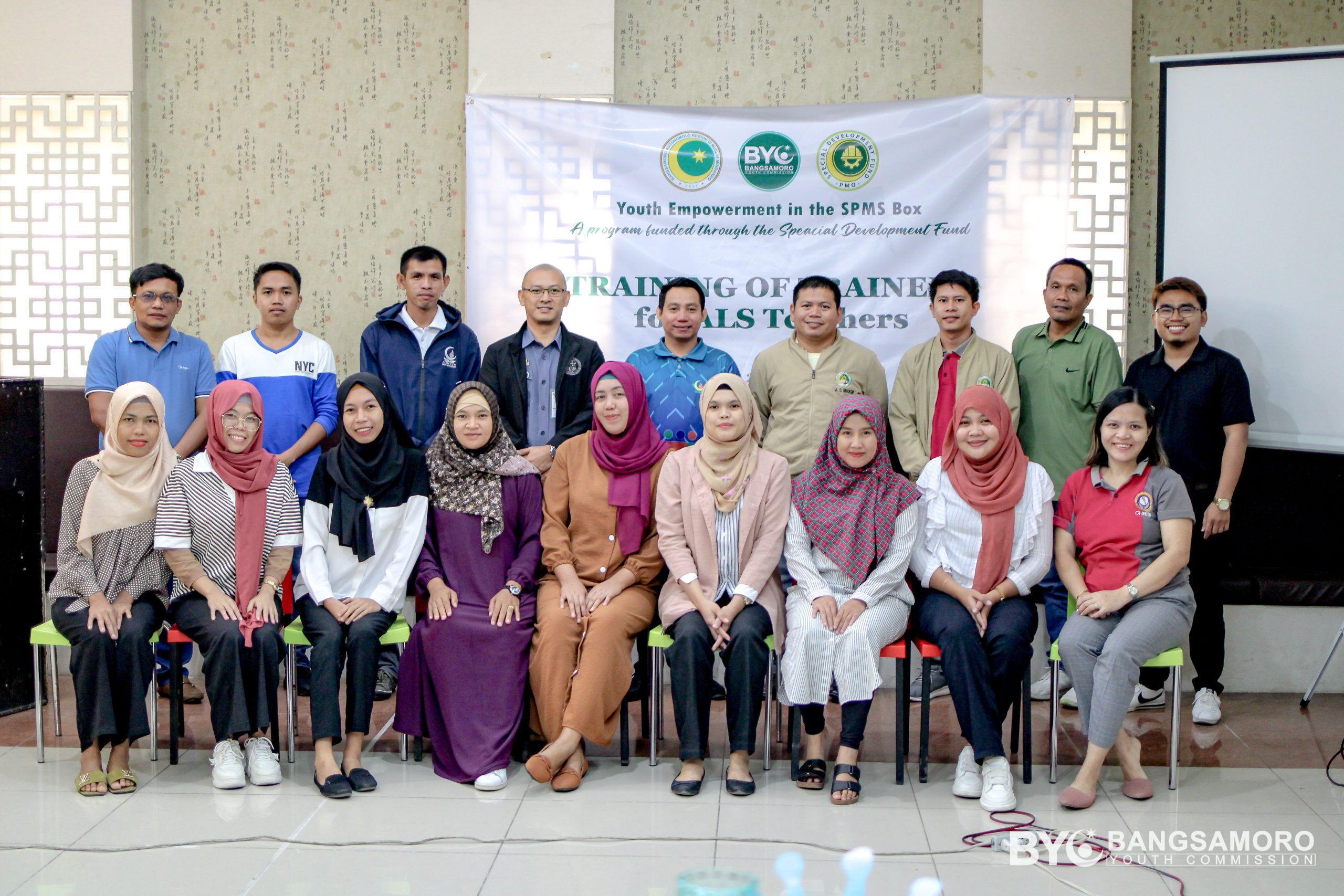
Community teachers for BYC’s youth empowerment project complete specialized training
